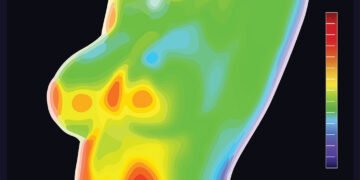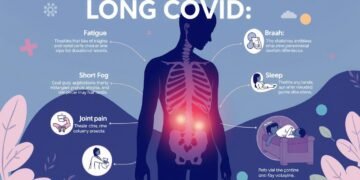The intricate relationship between your gut health and mood is becoming increasingly evident. The gut-brain axis refers to the complex communication network between your gut and brain, which are connected both physically and biochemically.

This connection enables the exchange of signals between your gut and brain, influencing each other’s health. Your gut and brain are not isolated entities; they work in tandem with your nervous, endocrine, and immune systems to maintain overall health.
Research suggests that the trillions of bacteria in your gut may impact your thoughts, feelings, and behaviors. Conversely, emotional stress can trigger digestive issues, highlighting the importance of nurturing your gut for better mood regulation.
Key Takeaways
- The gut-brain axis is a complex communication network between your gut and brain.
- Gut health problems can manifest as mood disorders.
- Emotional stress can trigger digestive issues.
- Nurturing your gut is crucial for better mood regulation.
- A healthy gut microbiome is essential for overall well-being.
The Science Behind Your Gut Feelings
The connection between our gut and brain is more than just a figure of speech; it’s a complex system that influences our mood and overall well-being. This intricate relationship is facilitated by the gut-brain axis, a bidirectional communication network that involves multiple body systems.
What Is the Gut-Brain Axis?
The gut-brain axis refers to the complex communication network between our enteric nervous system and our central nervous system. This network allows for the exchange of information between the gut and the brain, influencing various physiological processes, including digestion, mood regulation, and cognitive function. The gut-brain axis involves not only the nervous system but also the endocrine and immune systems, highlighting the interconnectedness of our bodily functions.
Your Digestive System as a “Second Brain”
The enteric nervous system is often referred to as our “second brain” due to its complexity and ability to function independently of our central nervous system. With over 500 million neurons, it is the most complex neural network outside of our brain. The enteric nervous system can operate autonomously, controlling digestive functions and producing many of the same neurotransmitters found in the brain.
This complex system is not just a simple relay of signals; it can function on its own, even when separated from the central nervous system. The presence of over 100 million neurons lining the digestive tract, from the esophagus to the anus, underscores the significance of the gut in our overall health and well-being.
The Gut-Brain Connection: How Your Digestive System Communicates with Your Mind
Your digestive system and mind are linked through an intricate communication system. This connection is facilitated by the vagus nerve, which serves as the primary channel of communication between your gut and brain.
The Vagus Nerve: Your Gut-Brain Superhighway
The vagus nerve is one of the 12 cranial nerves that originate in the brain and extend down to the abdomen. It conveys sensory information from your gut to your brain, allowing your brain to respond with motor signals that regulate various gut functions.
Neurotransmitters: Chemical Messengers Between Gut and Brain
Neurotransmitters, such as serotonin, are produced in both the gut and brain. The enterochromaffin cells in the small intestine produce the highest concentration of serotonin, which plays a crucial role in regulating mood, appetite, and sleep.
Gut microbes also produce neurotransmitters like GABA, which helps control feelings of fear and anxiety. This establishes a direct link between gut bacteria and emotional states.
The Role of Inflammation in Mood Regulation
The gut-brain axis is also connected through the immune system. Chronic inflammation originating in the gut can affect brain function and mood regulation. A leaky gut barrier can allow inflammatory compounds like lipopolysaccharide (LPS) to enter the bloodstream, potentially contributing to depression, dementia, and other brain disorders.
Understanding the complex communication pathways between your gut and brain can help you appreciate the importance of maintaining a healthy gut microbiome for optimal mental wellbeing.
Your Gut Microbiome and Mental Health
Emerging research highlights the significant impact of gut bacteria on our brain function. The gut microbiome, comprising trillions of bacteria in our digestive tract, plays a crucial role in influencing our mental health.
Influence on Brain Function
Gut bacteria produce neurotransmitters like gamma-aminobutyric acid (GABA), which helps regulate feelings of fear and anxiety. They also produce short-chain fatty acids (SCFAs) such as butyrate, propionate, and acetate by digesting fiber. These SCFAs affect brain function in multiple ways, including reducing appetite and maintaining the integrity of the blood-brain barrier.
The production of SCFAs is crucial for brain health. Butyrate, for instance, is important for forming the barrier between the brain and the blood, known as the blood-brain barrier. This barrier protects the brain from potentially harmful substances.
| SCFA | Function | Impact on Brain Health |
|---|---|---|
| Butyrate | Maintains blood-brain barrier integrity | Protects brain from harmful substances |
| Propionate | Influences appetite regulation | Affects feeding behavior |
| Acetate | Serves as energy source for brain cells | Supports brain metabolism |
Link Between Gut Dysbiosis and Mood Disorders
Gut dysbiosis, or an imbalance in gut bacteria, correlates with various mood disorders, including anxiety and depression. Research has shown that introducing beneficial gut bacteria can reduce anxiety behaviors in animal studies. Conversely, transplanting microbiomes from depressed humans into animals can induce depression-like symptoms.

Impact on Mental Wellbeing
The composition of gut bacteria directly affects brain function and mental wellbeing. Certain gut bacteria metabolize bile acids and amino acids to produce chemicals that influence brain function. This biochemical pathway connects gut health to mental health conditions and cognitive functions.
Understanding the role of the gut microbiome in mental health can lead to new approaches in managing mood disorders. By maintaining a healthy balance of gut bacteria through diet and lifestyle choices, individuals can potentially improve their mental wellbeing.
When Gut Health Goes Wrong: Impact on Mood and Cognition
Disruptions in gut health can lead to a cascade of effects, impacting not just digestion but also mood and cognition. The bidirectional relationship between gut health and mental health means that poor gut function can trigger anxiety and depression, while psychological stress can simultaneously disrupt gut health.
Anxiety and Depression: The Gut Connection
Research has shown that there’s a significant link between gut health and mental health disorders. Inflammation and high LPS in the blood have been associated with brain disorders, including severe depression, dementia, and schizophrenia.
The gut-brain axis is crucial in understanding how gut health affects mood. The vagus nerve acts as a superhighway, facilitating communication between the gut and the brain. Neurotransmitters, such as serotonin and dopamine, play a key role in mood regulation, and their production is influenced by gut bacteria.
| Gut Health Status | Mood Impact | Cognitive Function |
|---|---|---|
| Healthy Gut Microbiome | Positive Mood | Clear Thinking |
| Dysbiosis | Anxiety, Depression | Impaired Cognition |
Stress and Its Effect on Digestive Function
Chronic stress can alter the composition of gut bacteria, often increasing pro-inflammatory species that can further impact mood and cognitive function. Stress can also lead to “leaky gut syndrome,” allowing inflammatory compounds to enter the bloodstream and potentially affect brain function.
“The gut is not just a digestive organ; it’s also a key player in our mental health. The gut-brain axis is a complex communication network that links the enteric nervous system to the central nervous system.”
Emerging Research on Gut Health and Neurological Disorders
Recent studies have suggested that the gut may be the origin for some brain disorders. In Parkinson’s disease, for example, gut issues such as constipation and heartburn can precede movement symptoms by years or even decades.

Understanding the intricate relationship between gut health and mental health is crucial for addressing mood disorders and cognitive problems. By recognizing the warning signs of gut health issues and their impact on mood and cognition, individuals can take steps to address both physical and mental symptoms.
Nutrition Strategies for a Healthier Gut-Brain Axis
Eating the right foods can enhance your gut-brain axis, leading to better mental health. A well-balanced diet rich in specific nutrients can significantly improve the communication between your gut and brain.
Prebiotic Foods: Feeding Your Beneficial Bacteria
Prebiotic fibers found in whole grains, nuts, seeds, fruits, and vegetables are essential for feeding beneficial gut bacteria. These fibers can help reduce stress hormones in humans, promoting a healthier gut-brain connection. Some examples of prebiotic-rich foods include:
- Asparagus: Rich in inulin, a prebiotic fiber that supports gut health.
- Bananas: A good source of prebiotic fibers, especially when they’re not too ripe.
- Oats: Contains beta-glucans, which act as prebiotics.
Probiotic-Rich Foods and Supplements
Probiotic-rich foods like yogurt, kefir, and sauerkraut introduce beneficial bacteria directly into your digestive system. These foods have been shown to positively alter brain activity. Incorporating probiotics into your diet can be as simple as:
- Consuming a daily serving of yogurt or kefir.
- Adding sauerkraut or other fermented vegetables to your meals.
Omega-3 Fatty Acids and Polyphenols for Gut-Brain Health
Omega-3 fatty acids found in oily fish can increase beneficial gut bacteria while supporting brain health. Polyphenol-rich foods like cocoa, green tea, and olive oil contain plant compounds that are digested by gut bacteria, potentially improving cognitive function. Including these foods in your diet can be beneficial:
- Eating oily fish like salmon twice a week.
- Drinking green tea daily.
- Using olive oil as your primary cooking oil.
Incorporating these nutritional strategies into your daily diet can significantly enhance your gut-brain axis, leading to improved mental wellbeing. By focusing on prebiotic and probiotic-rich foods, omega-3 fatty acids, and polyphenols, you’re supporting a healthier gut and, by extension, a healthier brain.

Lifestyle Factors That Support Your Enteric Nervous System
Beyond nutrition, several key lifestyle factors play a crucial role in supporting the health of your enteric nervous system. These factors can significantly impact the gut-brain connection, influencing both digestive health and mental wellbeing.
Stress Management Techniques for Gut Health
Chronic stress directly affects gut function through the gut-brain axis, often triggering digestive symptoms. Effective stress management techniques such as mindfulness meditation, deep breathing exercises, and progressive muscle relaxation can help regulate the nervous system’s impact on digestion. By managing stress, you can create a more favorable environment for your enteric nervous system to function optimally.
Exercise and the Gut-Brain Connection
Research has shown that exercise influences gut microbiome composition. Studies have found that transferring the microbiome from active mice to sedentary ones can change their exercise motivation through gut-brain signaling pathways. Regular physical activity stimulates healthy gut contractions, improves transit time, and enhances microbial diversity, all contributing to better gut-brain communication. 
Sleep Quality and Its Impact on Digestive Function
Sleep quality is crucial for digestive function. Disrupted sleep patterns can alter gut bacteria composition and increase intestinal permeability. Circadian rhythm disruptions affect both gut function and mood regulation, emphasizing the importance of consistent sleep schedules for enteric nervous system health. Prioritizing good sleep hygiene is essential for maintaining a healthy gut-brain connection.
By incorporating stress management techniques, regular exercise, and prioritizing sleep quality into your daily routine, you can significantly support your enteric nervous system and enhance your overall gut-brain health.
Conclusion: Nurturing Your Gut for Better Mental Wellbeing
By understanding the gut-brain connection, we can take significant steps towards improving our mental health and quality of life. The complex communication network between our gut and brain involves multiple pathways, including the vagus nerve, neurotransmitter production, and the influence of gut bacteria. To support this delicate system, we can adopt dietary approaches rich in prebiotics, probiotics, omega-3 fatty acids, and polyphenols. Lifestyle factors such as stress management, regular exercise, and quality sleep also play a crucial role. By making small, consistent changes to support our gut health, we can yield significant benefits for our mental wellbeing over time. Nurturing our gut microbiome is a holistic approach to mental health, recognizing the body as an interconnected system. As research continues to uncover the intricacies of the gut-brain axis, it’s clear that caring for our ‘second brain’ is just as important as supporting our cognitive and emotional health directly.








































Discussion about this post